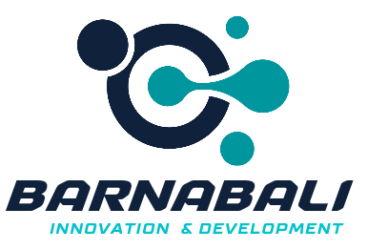Market Research and Lead Generation for Digital Products
Market research is a crucial component for the success of digital products. It involves gathering, analyzing, and interpreting information about a market, including the target audience, competitors, and the overall industry. Effective market research provides insights that help businesses make informed decisions, refine their products, and tailor their marketing strategies to meet customer needs.
Several methodologies can be employed to conduct thorough market research. Surveys are a popular tool, as they allow businesses to collect quantitative data from a large audience. By designing well-structured surveys, companies can gather valuable feedback on customer preferences, pain points, and expectations. In addition to surveys, focus groups offer qualitative insights through in-depth discussions with a select group of potential customers. This method helps uncover deeper motivations and opinions that might not surface in a survey.
Data analysis is another critical aspect of market research. By leveraging advanced analytics tools, businesses can process large volumes of data to identify trends, patterns, and correlations. This analytical approach enables companies to make data-driven decisions, optimize their marketing efforts, and enhance their product offerings. Furthermore, social media listening tools can track online conversations and sentiments, providing real-time insights into customer perceptions and emerging trends.
Identifying potential leads and converting them into customers is a key aspect of digital product success. Effective lead generation strategies involve attracting and engaging potential customers through various channels, such as content marketing, email campaigns, and social media advertising. By creating compelling content that addresses the needs and interests of the target audience, businesses can capture the attention of potential leads and nurture them through the sales funnel.
Several tools and technologies can aid in market research and lead generation. Customer relationship management (CRM) systems help businesses manage interactions with potential and existing customers, track leads, and automate follow-up activities. Marketing automation platforms streamline lead nurturing processes, enabling personalized communication and improving conversion rates. Real-world examples, such as the successful use of CRM systems by companies like HubSpot and Salesforce, demonstrate the effectiveness of these tools in driving business growth.
Commercial & Logistics Documentation Support for Export & Import Business
In the realm of international trade, commercial and logistics documentation is an essential component that ensures smooth operations in export and import businesses. Accurate and thorough documentation is not only a legal requirement but also a critical factor in safeguarding against compliance issues and operational delays.
Various types of documentation are required in the export and import processes. Key documents include invoices, which detail the transaction specifics; bills of lading, which serve as evidence of shipment and contract of carriage; and certificates of origin, which authenticate the country of manufacture. Each document plays a vital role in the seamless movement of goods across borders and compliance with international trade regulations.
The process of preparing and managing these documents can be complex. It involves meticulous data entry, verification, and adherence to regulatory standards. Ensuring compliance requires a thorough understanding of the specific requirements of different countries and international trade agreements. Errors or omissions in documentation can lead to significant delays, financial penalties, and reputational damage.
To enhance efficiency and reduce the likelihood of errors, businesses can adopt best practices for streamlining documentation processes. These practices include standardizing document formats, implementing detailed checklists, and conducting regular audits to ensure accuracy and compliance. Furthermore, providing comprehensive training to employees involved in documentation processes can significantly improve the quality of the output.
Digital tools have revolutionized the way businesses handle commercial and logistics documentation. Automation software can significantly reduce the manual effort involved in document preparation and management. Tools like electronic data interchange (EDI) systems facilitate faster and more accurate exchange of documents between trading partners. Additionally, cloud-based platforms offer real-time access and collaboration, enhancing overall efficiency and transparency.
There are numerous examples of successful implementation of digital tools in the industry. For instance, a global logistics company integrated an automated documentation system, resulting in a 40% reduction in processing time and a significant decrease in documentation errors. Such advancements highlight the transformative potential of digital technology in optimizing the documentation process.
In conclusion, effective management of commercial and logistics documentation is indispensable for the success of export and import businesses. By embracing best practices and leveraging digital tools, companies can ensure compliance, minimize errors, and enhance operational efficiency, ultimately contributing to smoother and more profitable international trade operations.

